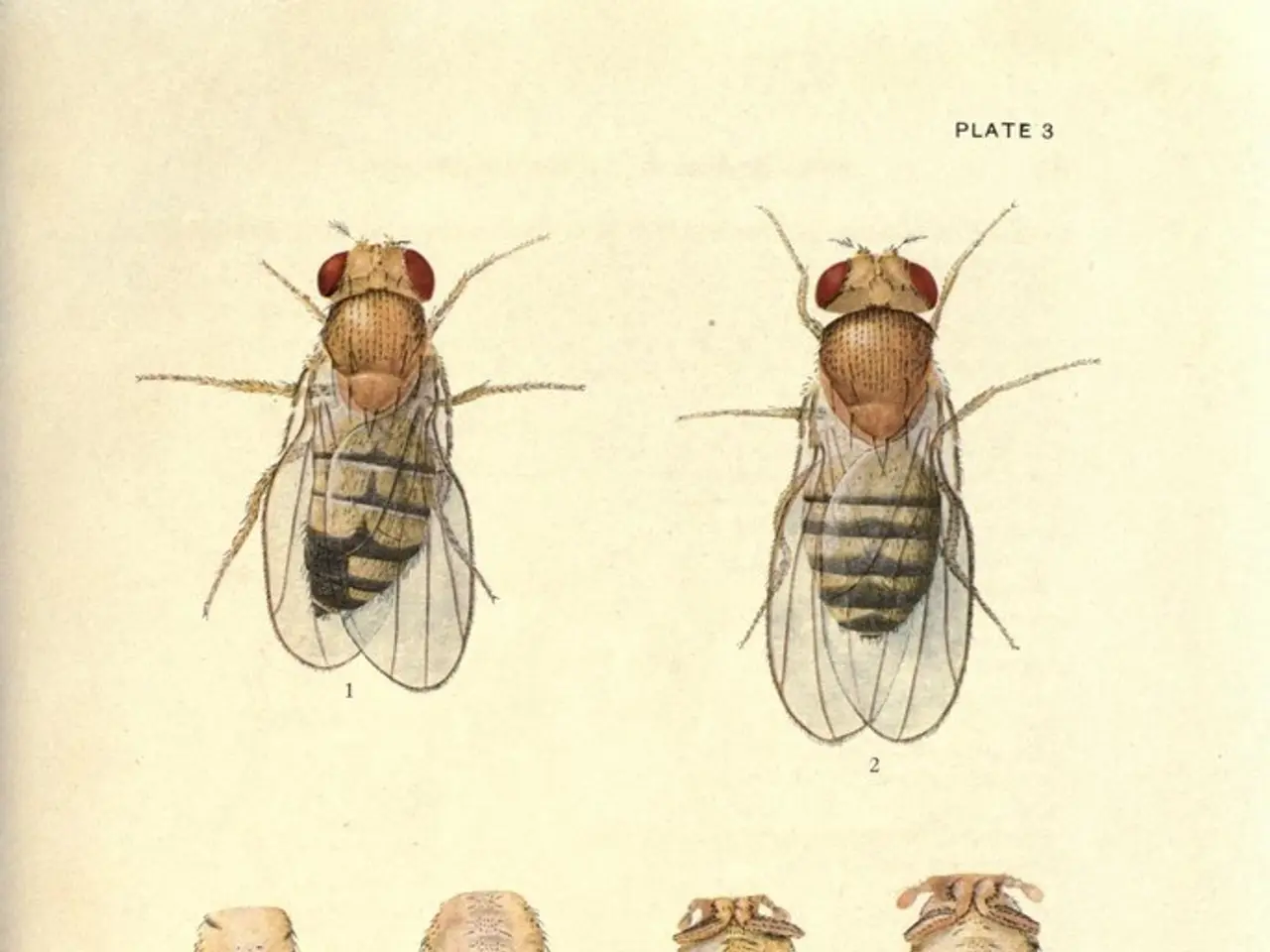Mosquito populations in Biysk during summertime were surprisingly low, while fly populations thrived, and a knowledgeable source explained the reasons behind this phenomenon.
In the heart of Russia, the city of Biysk has witnessed a significant change in its insect population this summer. As autumn approaches, mosquitoes have disappeared, going into hibernation, much to the relief of the city's residents. However, this decrease in mosquitoes has been accompanied by an unusual increase in the number of ticks, a group of insects known for their potential danger due to their role as carriers of viruses.
Biysk city experienced a noticeable decrease in insects this summer, particularly mosquitoes and ticks. The city administration spent the summer spraying and treating territories in an effort to eliminate these pests. Despite these efforts, ticks continue to be present in Biysk. Specialists from Voronezh have taken an interest in these ticks and have requested samples for further study using DNA analysis.
While mosquitoes have largely disappeared, there are other biting insects that have taken their place. Midges, small blood-sucking insects that love warm and sunny weather, have become more prevalent. Despite their small size, midges bite harder than mosquitoes. Fortunately, these midges do not pose a threat to human health, unlike ticks.
Hornets have also made an appearance in Biysk this summer. These insects, known for their painful sting, are not among the insects that were targeted in the city's summer treatment. The specialists in Voronezh were particularly pleased with the butterflies and beetles from Biysk, which were found to be thriving in the city.
Among the insects still present in Biysk are wolf spiders. Contrary to popular belief, wolf spiders do not have venom glands and do not pose a threat to humans with their bites. These spiders, along with the bugs living on lilacs, do not bother humans and do not spread any diseases.
Biologist Ludmila Komarova spoke about the "shift" in insects and the new types that have appeared in Biysk. This change in the city's insect population is a fascinating study in ecology, shedding light on the resilience of these creatures and the impact of human intervention on their behaviour.
As autumn arrives, Biysk residents can breathe a sigh of relief as mosquitoes hibernate, but remain vigilant against the persistent threat of ticks. The city's ongoing efforts to control these pests and the continued study of their behaviour will undoubtedly contribute to a better understanding of these creatures and the ways in which they can be managed in the future.
Read also:
- Conventional Medicine's Domain Shrinks as Complementary and Alternative Therapies Gain Popularity
- Restoring SCN2A gene function in mice through CRISPR activation enhances neurodevelopmental outcomes.
- New York joins a multistate health coalition to counteract chaos in federal vaccine distribution efforts
- Enhanced Iron Absorption in Female Health: Biotechnology Developed Plant Protein Outperforms Iron Supplements in Fermentation







